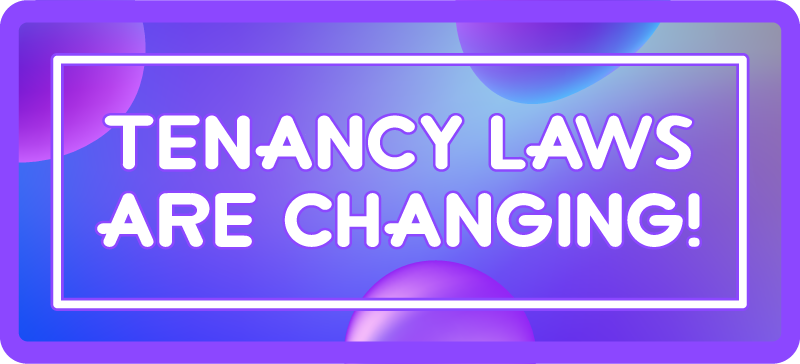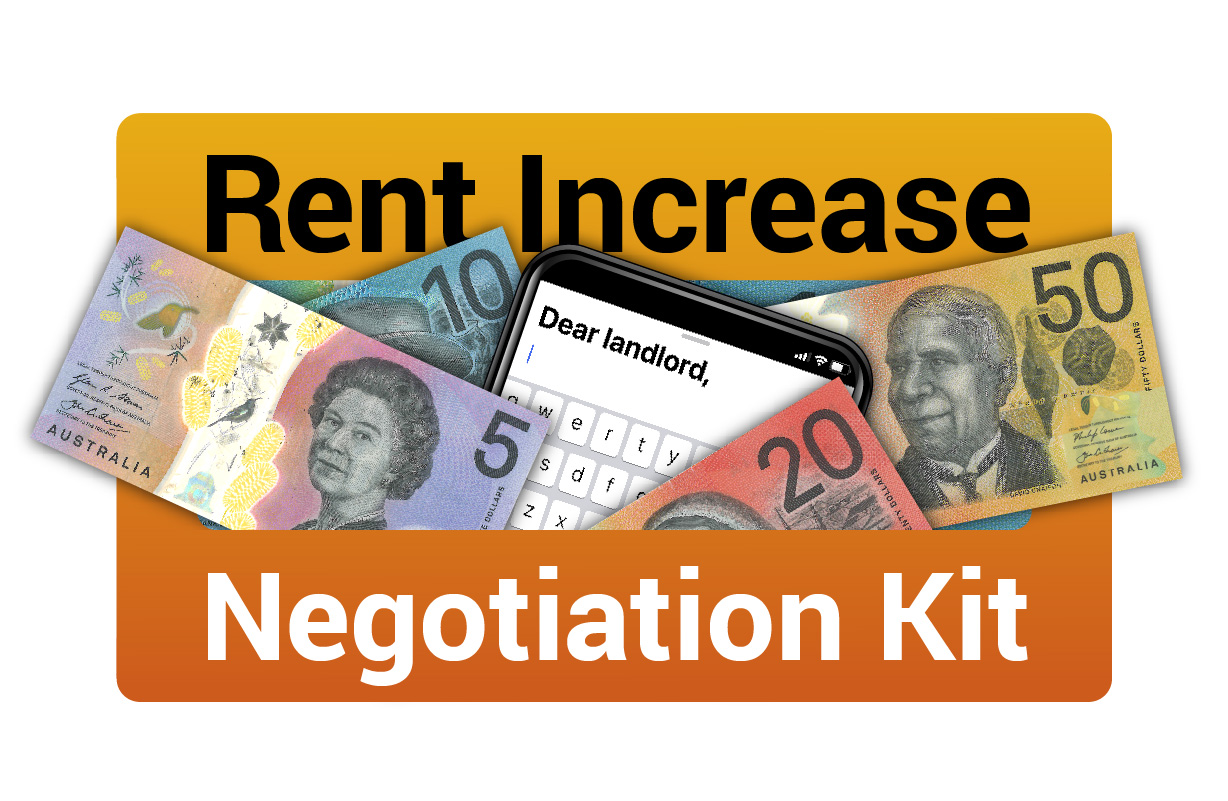Tips: Negotiating with the landlord
We all negotiate at times, but it can be challenging to negotiate with a landlord. Tenants are generally negotiating from a less powerful position, but there are things that can be done to increase the likelihood of success and reduce the stress. A negotiation is trying to reach an agreement. It is not a 'win' for one and a 'loss' for the other; at the end of the day it is about reaching an agreement both of you can live with.
If you need to negotiate with a landlord or real estate agent, here are some tips to help...
1. Do your homework
Make sure you’re aware of the law as it relates to your issue, and what is a reasonable ask. You may wish to get advice from your local Tenants Advice and Advocacy Service. Check out relevant factsheets:
- How do I challenge a rent increase? Negotiate a new lease? See our Rent Increase Negotiation Kit
- I’m falling behind on my rent, what should I do? See our Overdue rent factsheet
- I want to get a pet, how do I ask the landlord for permission? See our Guide to Renting with Pets
- Can I get a rent reduction for loss of amenities? See our Repairs and Maintenance factsheet
- How do I break my fixed-term lease early? See our Ending Fixed Term Tenancy Early factsheet
- I have a Tribunal hearing coming up, what should I do in a conciliation? See our Tribunal factsheet
2. Consider the risks
There are risks in any negotiation. Reaching an agreement with the landlord could prevent a lengthy Tribunal process and help you maintain your tenancy. However, it is possible that you will not be able to reach an agreement, and have to either engage in litigation, move on from the property or that your landlord could retaliate in some way.
3. Find allies
Are there other people you can team up with to boost your bargaining power? For example, if you are a homeowner in a residential land lease community, consider joining forces with other homeowners in the community before starting negotiations with the site operator. If you live in an apartment block owned by one landlord, find out if the other renters in the building are also facing rent increases.
4. Start negotiations early
Start negotiations as soon as you can so that you have time to arrange a Plan B if needed. For example, you might start negotiating two months before the end of a fixed-term lease to allow time to make other plans if you can’t reach an agreement.
5. Find out who you will be negotiating with
Will you be negotiating with the landlord directly or the real estate agent? The agent is the landlord’s representative, not a neutral party. While the agent has a responsibility to seek direction from the landlord, this does not always happen. If you can contact the landlord directly, they may be more open to your proposal, although this may come at a cost to your relationship with the agent.
6. Keep calm and carry on
Before starting negotiations, prepare yourself for the possibility that the other side may be rude, or talk down to you, or say things that are incorrect. Decide ahead of time that you will stay calm and focussed on the outcome you want.
7. It’s harder to say “no” to a person
Try visiting the real estate office or making an appointment to speak with the landlord in person. If this isn’t possible, call and speak to them first.
8. Start with an acknowledgement
Remind the other person that you know they are a person too - thank them for what they have done well over the course of your tenancy. People want to feel appreciated and they are more likely to want to return the favour and treat you as a person as well.
9. Remind the landlord why you’re a great tenant
Make sure you let the landlord know all of the benefits they will gain by having you (or keeping you) as a tenant. Do you always pay the rent on time? Keep the property clean? Mention it.
10. Put yourself in their shoes
Landlords and agents usually want to maintain a tenancy (to avoid costs of finding new tenants), have rent paid on time, and ensure the property is looked after well. Tailor your language and your position to them. For the most part, people will make decisions based on their own interests, so explain why what you want is also in their interests. Find reasons for them to say yes to you.
11. Let them take ownership over the solution
One way to negotiate is to discuss the most important aspects of the problem and ask them for a solution. Whatever they come up with they almost certainly will agree to. This allows them to feel like it was their own idea.
12. What can you live with?
Negotiations involve compromise. For example, the landlord might be willing to meet you half-way in a rent increase to keep you as a tenant. Usually two parties begin negotiations at different starting points and reach an agreement some place in the middle. For this reason, you might decide to start negotiations offering less or making a larger request, to allow some room to find a compromise. Decide ahead of time what you can agree to so you also know when to walk away.
13. Be specific
Make sure your agreement is clear and specific. For example, instead of agreeing that repairs will be made, state which repairs will be made and by what date.
14. Always ask for the agreement in writing
In any conversation with a landlord or a real estate agent, follow up the conversation with a letter or email confirming what was said. In a negotiation, it is doubly important to have a written record of what the new agreement is.
If you reach a roadblock in negotiations or if you just want some advice about what the next steps might be, contact your local Tenants Advice and Advocacy Service for free tenancy advice.
See also
- Factsheet 11: NSW Civil and Administrative Tribunal
- Podcast: Negotiation for renters
- New Renters Kit
- Rent Increase Negotiation Kit
Infosheet updated October 2023
This infosheet is intended as a guide to the law and should not be used as a substitute for legal advice. It applies to people who live in, or are affected by, the law as it applies in New South Wales, Australia. © Tenants’ Union of NSW.




